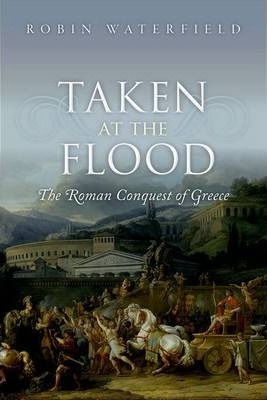The Romans first set military foot on Greek soil in 229 BCE; only sixty or so years later it was all over, and shortly thereafter Greece became one of the first provinces of the emerging Roman Empire. It was an incredible journey - a swift, brutal, and determined conquest of the land to whose art, philosophy, and culture the Romans owed so much.
Rome found the eastern Mediterranean divided, in an unstable balance of power, between three great kingdoms - the three Hellenistic kingdoms that had survived and flourished after the wars of Alexander the Great's Successors: Macedon, Egypt, and Syria. Internal troubles took Egypt more or less out of the picture, but the other two were reduced by Rome. Having established itself, by its defeat of Carthage, as the sole superpower in the western Mediterranean, Rome then systematically went about
doing the same in the east, until the entire Mediterranean was under her control.
Apart from the thrilling military action, the story of the Roman conquest of Greece is central to the story of Rome itself and the empire it created. As Robin Waterfield shows, the Romans developed a highly sophisticated method of dominance by remote control over the Greeks of the eastern Mediterranean - the cheap option of using authority and diplomacy to keep order rather than standing armies. And it is a story that raises a number of fascinating questions about Rome, her empire, and her
civilization. For instance, to what extent was the Roman conquest a planned and deliberate policy? What was it about Roman culture that gave it such a will for conquest? And what was the effect on Roman intellectual and artistic culture, on their very identity, of their entanglement with an older Greek
civilization, which the Romans themselves recognized as supreme?












